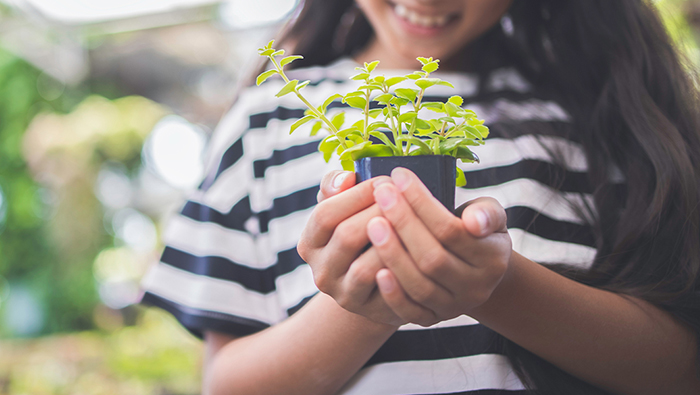Thanks to Kiwanis, kids in Oklahoma are building a greenhouse to grow produce — and job skills.
Story by Julie Saetre
In North Tulsa, Oklahoma, some 4,000 children live in low-income families. Twenty-five percent go to bed hungry every night, 58% drop out of school before graduating high school and 99% don’t go on to trade school or college.
It’s not surprising then that Chris Beach, executive director of Tulsa YouthWorks, shared these statistics and more with fellow members when he joined the Tulsa Kiwanis Club. Also not surprisingly, the club began supporting YouthWorks initiatives.
In the past, the club has donated to Summer Dream Camp, an annual YouthWorks program for first through fourth graders that provides reading and math tutoring, field trips, leadership training, service opportunities, recreation and more. Equally important, it serves breakfast and lunch to participants five days a week for 10 weeks.
“When school is out, a lot of these kids will not eat,” explains John Sanford, a fellow member of the Tulsa Kiwanis Club. “And this past year, I think they thought they were going to have about 80 kids, and about 200 showed up. So our club gave them about $6,000 so they had enough money to buy food.”
In its 11 years in the community, YouthWorks also has established a 30-week after-school program that includes tutoring, recreation, a snack and dinner; The YouthWorks Pizza Factory, where children and teens learn how to run their own pizza business (and sell the pies to earn money for college or trade school); and the YouthWorks Ranch, where children care for (and bond with) animals, ride horses, swim and play outdoor games.
Beach’s latest initiative takes these learning experiences in yet another new direction. With the help of a $55,000 donation from the Tulsa Kiwanis Club, Tulsa YouthWorks will teach kids how to grow fruits and vegetables year-round in a “multi-ponic” greenhouse — one that uses hydroponic, aquaponic and aeroponic systems. In fact, the kids are building the greenhouse themselves through the Dream Camp and after-school programs.
When the new greenhouse training center opens, its bounty will be delivered to North Tulsa families in need through area churches and other strategic partners.
For the Tulsa Kiwanis club, it will have an added benefit: appeal to a younger demographic of service leaders. Once more than 200 members strong, the club now has around 55 members and is working to add a 40-under subgroup. To accommodate busy workdays, the subgroup will meet in the evenings rather than during the main club’s lunchtime get-togethers.
These younger members will also step in for hands-on service projects that are becoming more challenging for some of the older members. Their service will be welcome for projects such as Christmas parties and back-to-school clothing donations.
“It’s kind of hard for all of us old guys to chase these kids down,” Sanford says with a laugh. “And I think that’s going to be a good thing for us because it’s going to get these younger members involved with these kids.”
Sanford encourages other Kiwanis clubs to seek out similar projects, noting that the multi-ponic greenhouse concept attracts people of all ages.
“This is a very interesting idea and not very hard to get going,” Sanford says. “The greenhouse doesn’t have to be as big as the one we helped purchase. It could be half that size and still be effective.”

